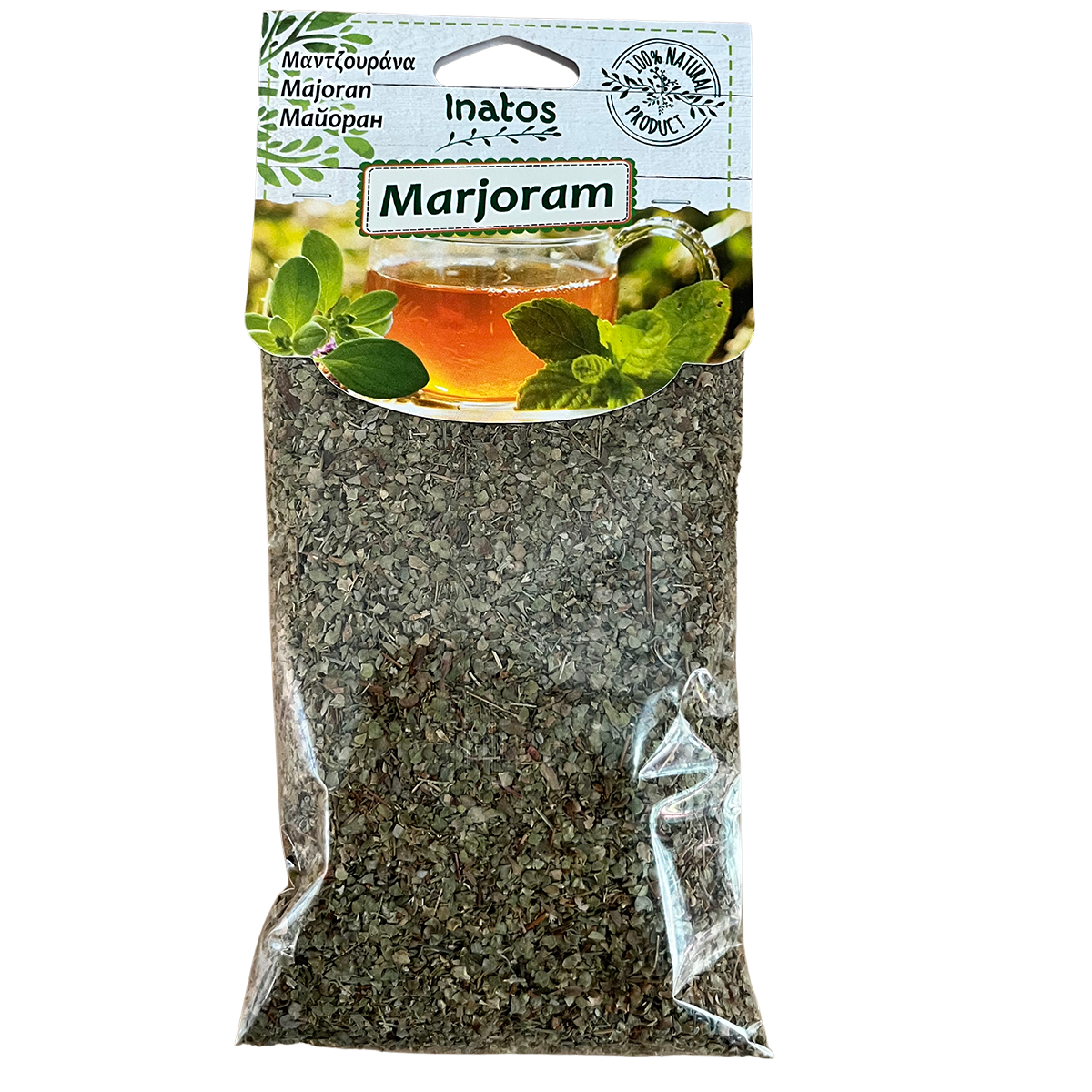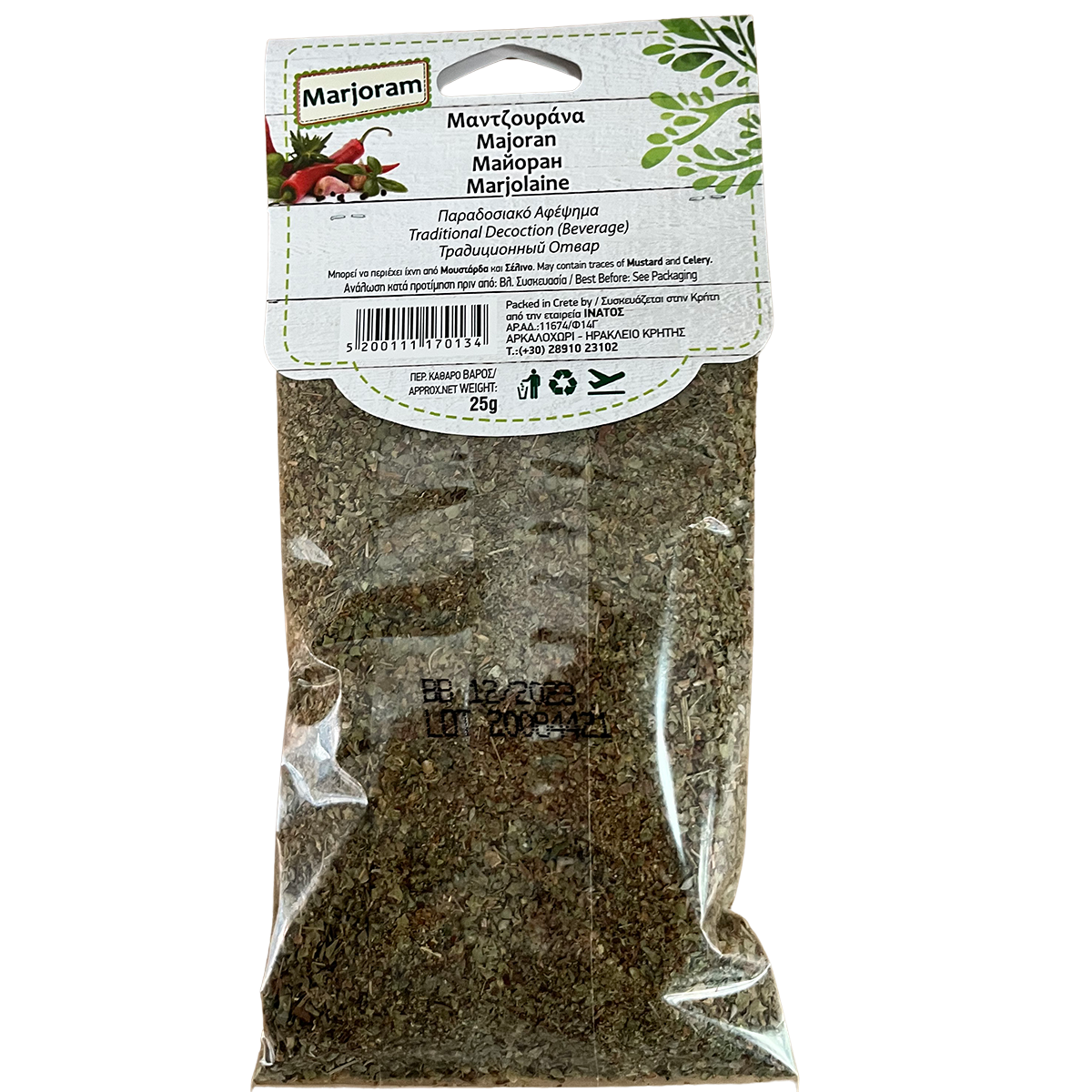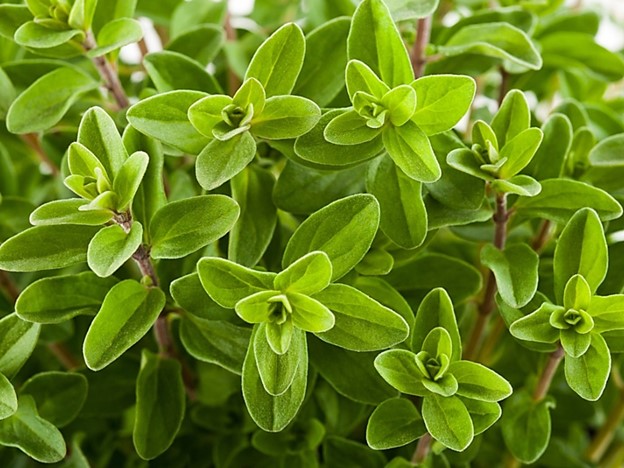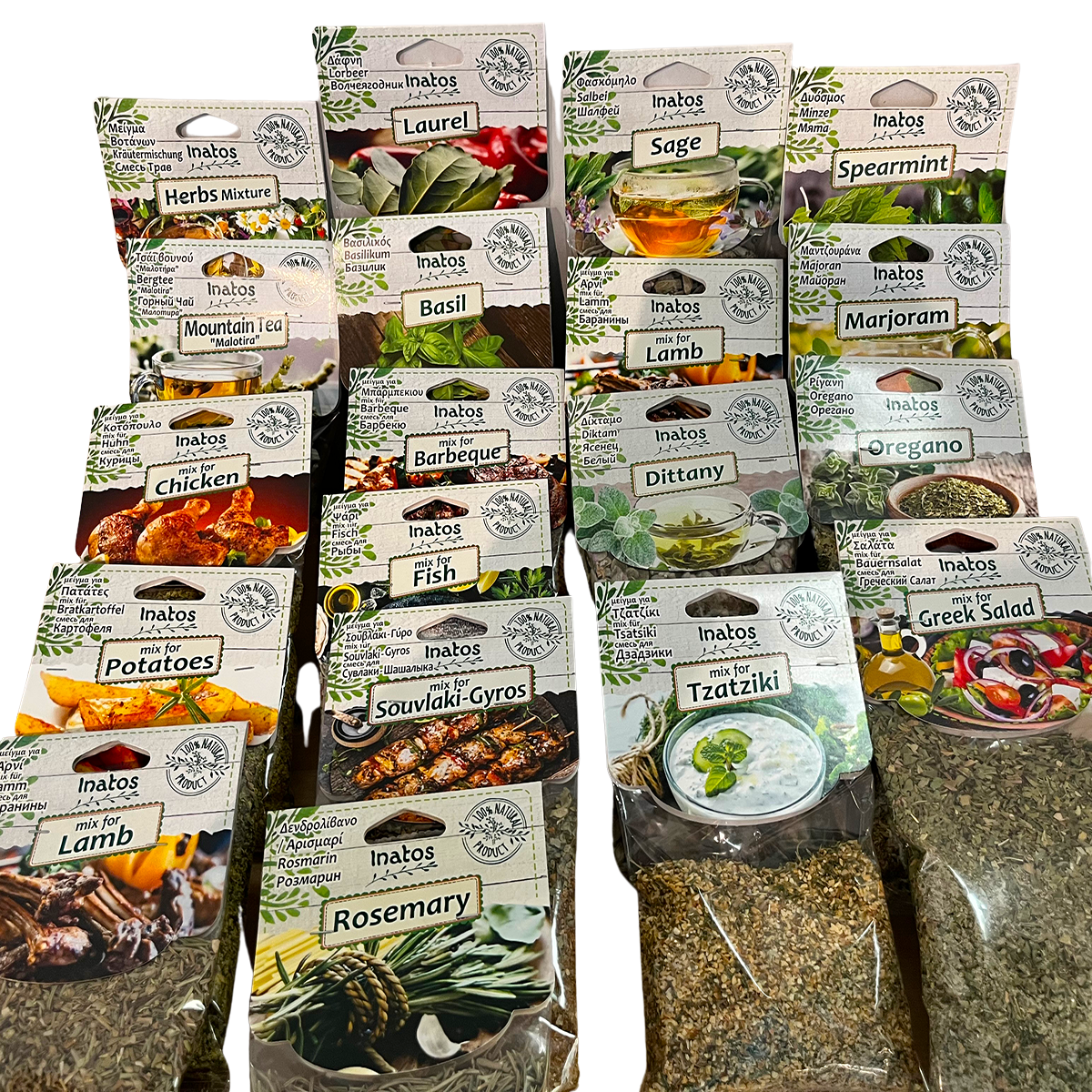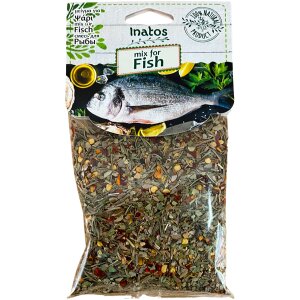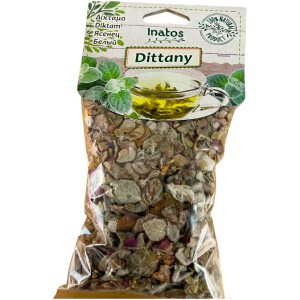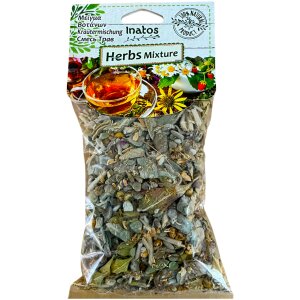- You cannot add "Greko Lemon Roast Potatoes Seasoning 300gr" to the cart because the product is out of stock.
Inatos Marjoram – 100% Natural
$2.89
Inatos Marjoram is a plant known to Greece since antiquity. The great Hippocrates used marjoram as an antiseptic. It is a cold-sensitive plant.
Description
Inatos Marjoram
Marjoram is a plant known to Greece since antiquity. The great Hippocrates used marjoram as antiseptic. Marjoram (/ˈmɑːrdʒərəm/; Origanum majorana) is a cold-sensitive perennial herb or undershrub with sweet pine and citrus flavours.
Healing Properties:
A very rich source of antioxidants, minerals, and vitamins. Acts as a general stimulant but as a sedative for the neural system as well. Marjoram helps to regulate bloating, colics, and breathing problems. It is considered to be a great stimulator, helpful to relieve stress, insomnia, and headaches. An excellent source of iron, phosphorus, potassium, calcium, zinc, manganese, vitamin C, niacin, vitamin B6, vitamin A, folic acid, vitamin K, and b-carotene.
Marjoram in cooking
Marjoram is widely used in sauces and salads, while it enriches the taste and aroma of meat, fish, pasta, pies, cheese and bread.
Ingredients:
Marjoram
May contain traces of Mustard and Celery
Size:
25 grams
Also Available at Parthenon Market, Deli, and Café
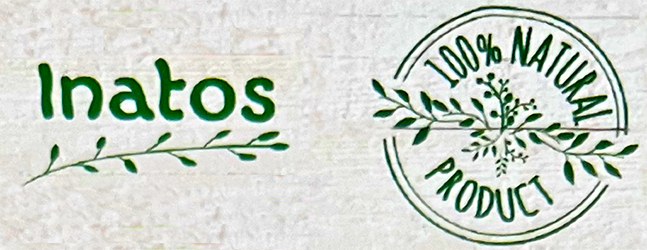
Inatos greek spices are 100% natural.
They are packaged in Crete, however, they are grown all over Greece.
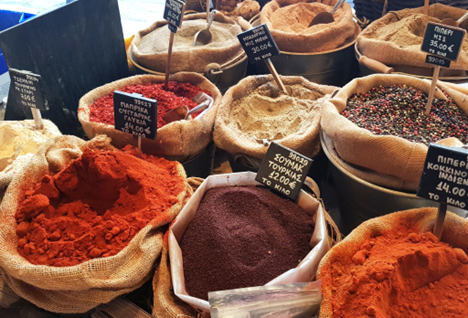

“Herbs were the main ingredient of Greek cooking all the way back to ancient times. Being a natural product of so much variety in the Greek countryside and taking advantage of the ideal climate, they gave the Ancient Greeks the ingredients to flavour their food, as well as the possibility to cure people of diseases. As far as their medical use is concerned, the physician Hippocrates was known for basing the Hippocratic elemental healing system on medicinal herbs, and this system is considered one of the cornerstones of later Western medicine. On the other hand, due to their abundance and simplicity, culinary herbs were widely grown and dried, and their combination with one of the crown jewels of Mediterranean cuisine, olive oil, was commonplace in the preparation of a meal. Sometimes, herbs were also used in some religious ceremonies during the time period.
Some of the main herbs used in Greek cuisine include oregano (known in the classical world for its association with Aphrodite and happiness, whereas today it is considered the king of Greek herbs), thyme, sage, parsley, dill, mint, spearmint, fennel, and many others.
Spices, on their part, were also the main ingredient of an ancient Greek meal, but it is true that the majority of spices used in Greek cookery today can be linked to the millennia of interaction Greece has had with other great civilizations, such as the Romans, the Persians, the Turks, the Arabs and a host of others from all over the world. Today, spices like garlic, onion, cinnamon, cumin, coriander, nutmeg, pepper, paprika, cloves, and sesame constitute an integral part of what makes Greek cuisine so aromatic. A special mention has to be made about greek saffron from Kozani and greek mastic from Chios, both of which have a P.D.O. Designation, are only grown in these specific regions and are regarded as number one worldwide.”
Read the full article by Anna Tzogia here: Aromatic herbs and spices of Greek cuisine!

